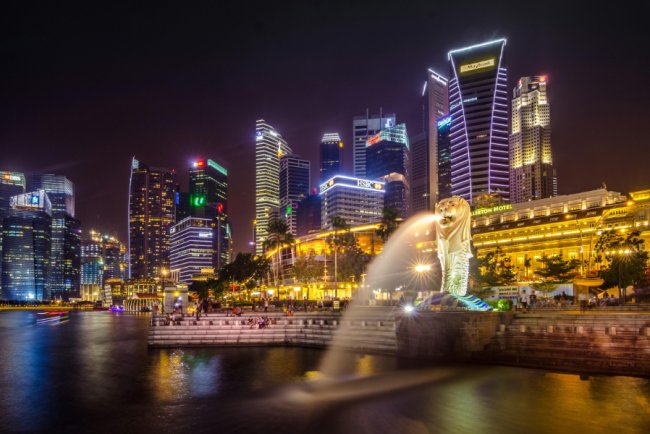India Leads Green Maritime Revolution At Shipping Conclave
India reaffirms commitment to green maritime future at Green Shipping Conclave 2025 with global leaders.

Mumbai also saw a giant leap towards maritime sustainability with the launch of the Green Shipping Conclave 2025 by Union Minister of Ports, Shipping & Waterways Shri Sarbananda Sonowal. Delivering his remarks to the occasion, which involved important stakeholders of the maritime community, government, and academia, the Union Minister highlighted India's central role in spearheading an international maritime revolution centered on sustainability, innovation, and environmental leadership.
In a historic move, the International Maritime Organisation's (IMO) Secretary General His Excellency Arsenio Dominguez was also at the conclave, reflecting a new India-IMO benchmark. His visit was greeted with a welcome from Shri Sarbananda Sonowal as an important measure in advancing international alliances towards greener shipping.
During his address, Shri Sonowal reiterated India’s commitment to building a cleaner, greener, and more resilient maritime future in line with Prime Minister Shri Narendra Modi’s vision of Viksit Bharat. He stressed that sustainability is not merely a regulatory obligation but also an economic opportunity and a moral responsibility. He mapped out India's current plans, such as the Harit Sagar Green Port Guidelines, Green Tug Transition Programme, and the National Green Hydrogen Mission. The goal of these schemes is to convert Indian shipping activities and ports into models for global sustainability.
One of the important announcements at the conclave was the ₹25,000 crore Maritime Development Fund that will fuel investment in green infrastructure, alternative fuels, and modernization of fleets. The fund will facilitate India's global leadership in decarbonization initiatives and the establishment of strategic green shipping corridors. India, the minister claimed, is not merely adjusting to change but leading the global conversation on sustainable maritime operations.
The conclave offered an impactful podium for policy debates, technical engagement, and industry partnerships. The CEO Round Table on Renewable Energy, led by IMO Secretary-General Arsenio Dominguez, was one of the most important sessions. It was about speeding up investments in clean fuel and developing green port infrastructure. The session emphasized India's strategic initiatives in advancing alternative energy solutions like green hydrogen, ammonia, biofuels, and liquefied natural gas (LNG).
Union Minister of State for Ports, Shipping & Waterways, Shri Shantanu Thakur, also spoke at the conclave, highlighting India's ambitious maritime projects under Maritime India Vision 2030 and Amrit Kaal Vision 2047. He emphasized that India is spearheading the revolution in the maritime sector by investing in clean energy, green ports, and innovative shipbuilding. With forward-looking policies, global partnerships, and investment in alternate fuels, the nation is setting new standards for decarbonization. Shri Thakur emphasized that these vision-led strategies are a model for empowering India's maritime industry so it can continue to lead global efforts for sustainability.
Major topics during the conclave were India's emphasis on green energy, green ships, and green ports. Under the National Green Hydrogen Mission, the nation is encouraging greener fuels like green hydrogen and ammonia to lower carbon emissions in shipping. Low-emission ships, hybrid ships, and all-electric ships were advanced under the Green Tug Transition Programme (GTTP) and the Harit Nauka initiative. Another key point of emphasis was India's Alang Sustainable Ship Recycling Programme that is in compliance with the Hong Kong Convention standards, promoting environmentally sound recycling practice.
His Excellency Arsenio Dominguez praised India's strategic position in international shipping for its role in sustainable maritime growth, alternative energy options, and global regulatory coordination. He emphasized the IMO's commitment to helping India's transition to the sea through capacity building, financial facilities, and technical cooperation.
The conclave ended on a valedictory session conducted by Shri Sarbananda Sonowal and Shri Rajesh Kumar Sinha, Additional Secretary, Ministry of Ports, Shipping & Waterways. The session defined India's plan for a green maritime future, reasserting the nation's leadership in global shipping decarbonization, digitalization, and alternative fuel deployment.
The Green Shipping Conclave 2025 was hosted by the Ministry of Ports, Shipping & Waterways, the Directorate General of Shipping, and the Institute of Marine Engineers (India). The conclave was an important platform for the convergence of innovative thinking and India's leadership in maritime sustainability. It emphasized the nation's dedication to aligning its maritime industry with international decarbonization efforts and enhancing global partnerships for a cleaner and more resilient shipping sector.
What's Your Reaction?

















